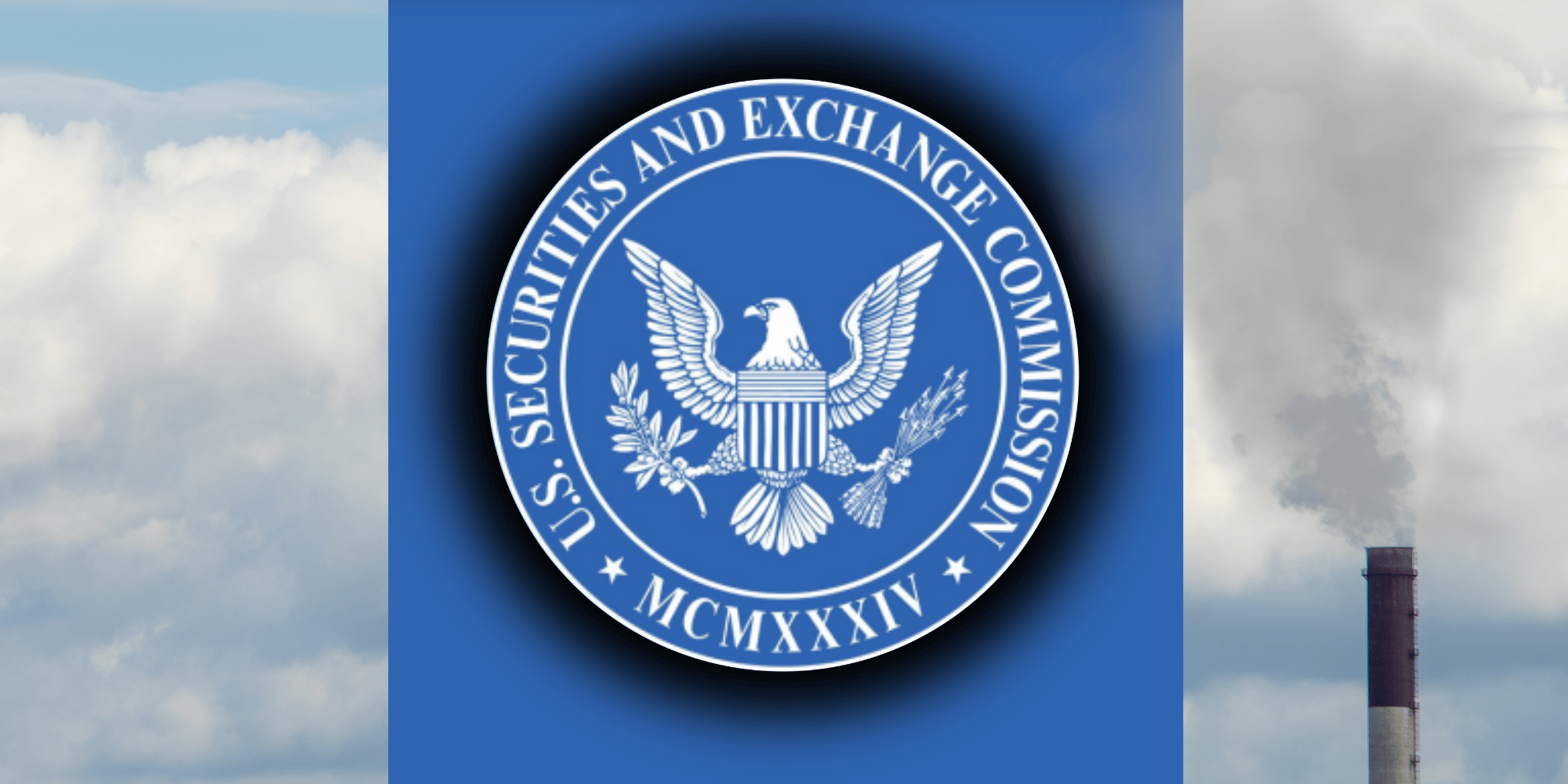On March 6,2024, the SEC adopted in a 3-2 vote along party lines the long-awaited final rule on climate-related disclosures, following two years of intense public scrutiny over the proposed rule introduced in March 2022.
The final rule is scaled back in many respects with notable changes. Most significant perhaps is the elimination of the proposed requirement to disclose Scope 3 greenhouse emissions -- those indirect emissions (not included in Scope 2) that occur in the value chain of the reporting company, including both upstream and downstream.
For the last two years, companies, organizations, and institutions have been framing discussions around how to best prepare for “Scope 3 guidance” from the SEC. Although in recent months there have been signals that disclosure of Scope 3 emissions might be removed from the final rule, expected filers were still assessing capacity to adhere to these possible requirements, with universal agreement they were facing a daunting and resource-intensive task.
In addition to Scope 3 modification, additional changes in the final rule include:
- the limitation of certain requirements to large accelerated filers (LAFs) and accelerated filers (AFs) (such as Scope 1 and Scope 2 emissions disclosures and related attestation reports);
- an accommodation that allows Scope 1 and Scope 2 emissions disclosures to be filed on a delayed basis each year;
- a less prescriptive approach to climate-related risk disclosure;
- removal of the requirement to disclose climate expertise of directors; and
- a narrowing of financial statement disclosure requirements.
Although these changes alleviate some of the burden on public companies compared to the original proposed rule, the new requirements imposed by the final rule (under Regulation S-X and Regulation S-K) will dramatically increase climate disclosures in registration statements and annual reports. In other words, notes, Judy Samuelson, Business and Society Program at Aspen Institute in writing of the new rule, “Regardless of the eventual disposition of the new SEC rule, there’s a Scope 3 disclosure regimen that’s going to capture you somewhere.” If it’s not exposure to one of the bills passed in California or EU disclosure requirements, she adds, “there’s always the reality of being in the supply chain of someone who IS subject to a higher bar.”
Anticipated Compliance Timeline
The final rule includes a compliance phase-in timeline based on a company’s filer status, requiring certain disclosures for fiscal years beginning in 2025 for LAFs, 2026 for AFs and 2027 for smaller reporting companies (SRCs), emerging growth companies (EGCs), and non-accelerated filers (NAFs). The rules also have additional phase-in periods for disclosures related to material expenditures and impacts, emissions, assurance, and electronic tagging.
Although these phase-ins are welcome across filers, they are right around the corner and still a heavy lift, and for LAFs will require almost immediate preparation for the first set of filings.
Disclosure Requirements Added to Regulation S-K
There are already several informational blogs and articles that have emerged with solid guidance on how to interpret and apply final rule requirements, particularly on how to address a new subpart 1500, Climate-Related Disclosure, to regulation S-K (see linked resources, below). This subpart requires extensive disclosure regarding climate-related risks, transition plans, targets and goals, risk management, governance, and Greenhouse Gas (GHG) emissions, and is applicable to Exchange Act periodic reports and Securities Act and Exchange Act registration statements. Filers should be preparing now to better understand expectations and to align resources behind documentation and disclosure.
Implementation Considerations: Companies Should Prepare Now!
An estimated 96% of Fortune 500 companies included some mention of climate change in their most recent annual reports, addressing primarily general risk factors associated with the physical impacts of climate change, reputational risk, and increased regulation and ESG landscapes. Managing Director of Resonance Impact Advisory (RIA) Peter Hall, an expert in the climate adaptation and resilience space and UN Climate Change High-Level Champion for COP28, says we can expect to see companies report far more detailed information going forward.
“The final rule that Adopts Rules to Enhance and Standardize Climate-Related Disclosures for Investors should create an important driver to accelerate climate action in the private sector. By requiring companies to disclose with greater transparency how climate-related risks are integrated into the overall business – and by requiring that expenditures and finance impacts that develop from their climate-related strategies and actions – we expect a needed shift within the private sector.”
- Peter J. Hall, Managing Director, Resonance Impact Advisory
Given this push, even despite legal filings within hours of the published rule that might lead to delays, Hall says companies should not hesitate to continue down the path of implementation preparedness. This includes designing a well-developed plan focused on:
- Understanding the current state of climate disclosure, information, and the greater landscape in which the new rule is embedded. Companies must ensure that what they have and continue to gather internally, as well as the processes used to collect, assess, and report out data, are best practice, current, and widely understood by stakeholders tasked with involvement at all levels and scopes.
- Related, tending immediately to establishing or enhancing climate governance, from employees and management to the board of directors, via informing and educating stakeholders about the final rule, delineating structures and processes, and building capacity across the organization.
- Conducting a gap analysis to identify and assess gaps related to data, processes, controls, and reporting mechanisms, including ongoing and anticipated disclosures such as financial statements and financial snapshots in annual reports, as well as other reporting instruments and mechanisms.
- Assessing data management and reporting processes and resources to meet reporting deadlines, factoring in Rule changes that may require advanced resourcing and acquisition, as well as onboarding and lead times.
- Preparing for attestation (an attestation report from an independent attestation service provider) if applicable by understanding attestation requirements and developing plans to provide sufficient support well in advance.
- Developing a detailed action or execution plan for implementing the final rule and integrating it with plans designed for applying and adhering to other climate reporting requirements that are underway or anticipated.
- Executing steps of the action plan when possible and realistic to both avoid a bottleneck and to assess and recalibrate if necessary processes and controls across the organization.
Many Companies will Need Help
The companies Resonance works with directly and sustainability leaders who shared dialogue as part of our 2023 Sustainability Roundtable series were conveying trepidation around capacity and bench strength to execute these increasing requirements. Never-the-less, many were preparing.
Although Resonance is not in the business of providing direct ESG or Scope 3 emissions reporting services, our firm does help companies design programs, processes, and evidence-based systems and tools that can be utilized as part of these greater (and more focused) reporting efforts. In addition, our teams can aid companies in designing integrative change management approaches as well as mapping and coordination systems to assist companies in optimizing resources and identifying gaps where more innovative solutions might be needed.
We encourage you to contact Resonance if you would like to explore how our teams might assist in these areas, and offer additional resources, below, to learn more about the Final Rule.
Additional Resources to Learn More:
Here is a list of sources that provide essential and detailed information about the new SEC Final Rule(s) on Climate-Related Disclosures:
SEC FACT SHEET: The Enhancement and Standardization of Climate-Related Disclosures: Final Rules https://www.sec.gov/files/33-11275-fact-sheet.pdf
GENERAL BACKGROUND
Recorded Webinar and Slide Deck from Competent Boards
Bloomberg article (Need Account)
REPORT ON FIRST LAWSUITS FILED
ESG and INVESTMENT RELATED
ESG Today article: “90% of Investors Say CSRD, SEC Climate Reporting Rule Will Drive Better Investment Decisions: Workiva Survey”



